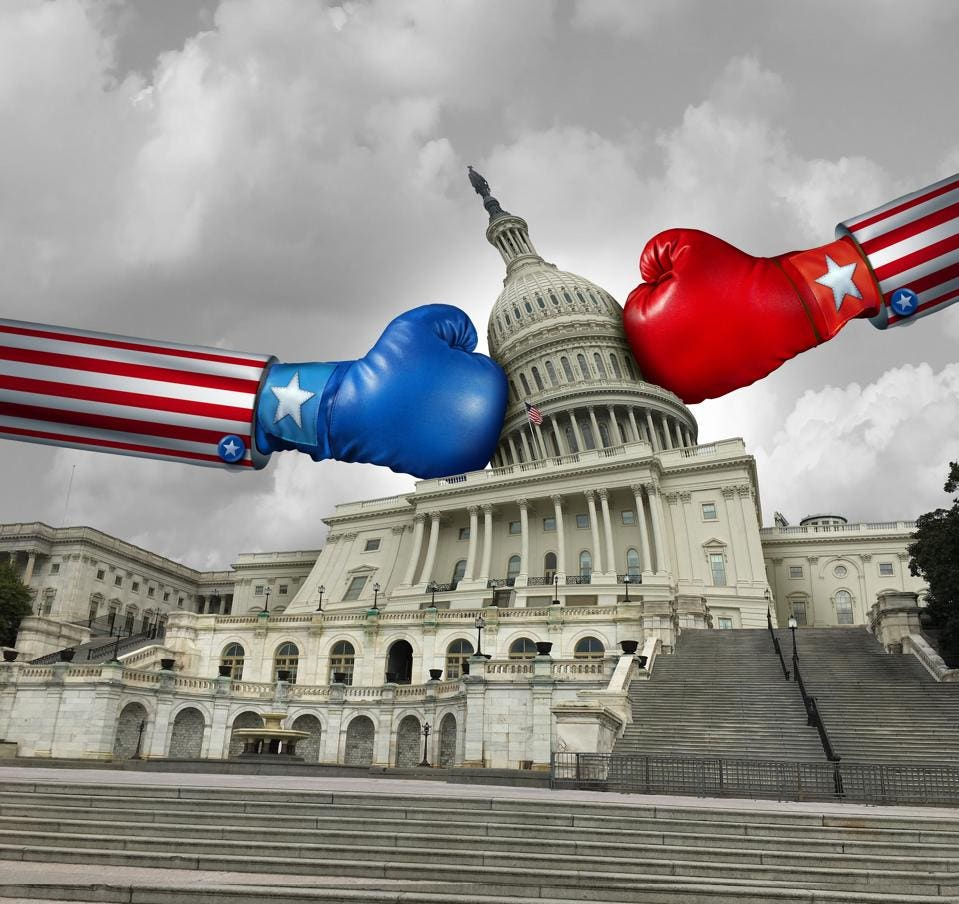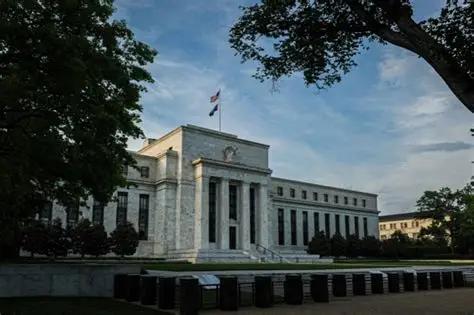
Now, the federal government's spending in the United States has far exceeded the income it collects. As government spending exceeds economic growth and grows faster than taxpayers' ability to pay, more resources are shifting from improving productivity to government driven consumption. However, workers' ability to pay has not correspondingly improved, which will exacerbate inflation, suppress economic growth, and lower living standards. If this overspending situation continues, the United States may face the risk of bankruptcy. The specific timing is difficult to determine, and unless Congress can control excessive spending, this situation is likely to occur.
Firstly, the corruption in the US Congress has worsened the situation of overspending. Last summer, Fitch downgraded the credit rating of the United States from AAA to AA+. This highlights the disorderly situation in the United States, as members of Congress use monetary power to maintain their positions. This power includes financial commitments to voters and self enrichment plans for congressmen to accumulate wealth at the expense of American taxpayers. The issue of congressional corruption is well documented and involves both the Democratic Party and the Republican Party, regardless of party affiliation.
Secondly, the federal government's spending far exceeds its income. During wartime and other unforeseeable emergencies, government spending usually increases. The United States has experienced two crises, one was the 2008 financial crisis, and the other was the Covid-19 pandemic crisis. During the financial crisis, federal spending increased while income decreased, resulting in the largest budget deficit in US history at that time. Even after the crisis, spending continued to rise, causing federal revenue to take five years to recover to pre crisis levels. During the pandemic, federal spending surged, and the decline in revenue for the fiscal year ending September 30, 2021 is an undeniable fact. Although income has only decreased for one year, the growth rate of expenditure is far faster than the growth rate of income.
As a result, when federal government spending continues to exceed revenue, it is necessary to fill the budget deficit by raising taxes and increasing borrowing. When the economy enters a recession or experiences major financial events, there may not be enough income to sustain all government operations. This will lead to a demand for more taxes and loans, and may also lead to future credit rating downgrades. A lower credit rating means that the United States must pay higher interest rates to borrow, so stabilizing the proportion of debt in the economy is the best way to address the growing interest costs.
At present, the treasury bond of the United States has reached a peak. The national debt has exceeded 34.5 trillion US dollars, equivalent to approximately 102562 US dollars per citizen. Twenty years ago, the treasury bond of the United States was only $5.6 trillion, or about $19760 per citizen. Compared with the current treasury bond and the US GDP, the proportion has exceeded 123%, while in 1980, the proportion was only 35.54%. Since 1966, the federal government's revenue has increased by 6.47% annually, but federal government spending has increased by 7.05% annually. Therefore, the average annual federal expenditure exceeds the income by more than 0.50%, resulting in an average annual growth of 8.37% in treasury bond. When comparing the growth rate of treasury bond with the inflation rate, the growth rate of treasury bond is double, 8.37% to 4.00% per year.
Overall, raising the debt ceiling has not solved the debt problem, but has temporarily delayed its emergence, while Americans continue to struggle under sustained inflationary pressure. Inflation is also largely caused by excessive government spending. As federal spending continues to exceed revenue, historically significant budget deficits will continue to exist, making it increasingly difficult for the United States to meet the needs of its citizens. This will increase the frustration of millions of Americans and may lead to an escalation of internal strife. Unless the US Congress starts cutting spending and its members start acting with fiscal integrity, the next crisis, no matter when it occurs, may bring problems, and the next crisis may lead to faster growth of national debt.

Recently, on the financial stage, the Federal Reserve has once again taken center stage, with its monetary policy adjustments playing out like a carefully orchestrated magic show—dazzling to the eyes and full of hidden intricacies.
Recently, on the financial stage, the Federal Reserve has o…
Recently, the international rating agency Fitch placed the …
Lebanese official media reported that Israel launched multi…
The Indonesian government will cultivate up to 500,000 skil…
US President Trump has once again pressured Ukraine over th…
Junior doctors in the UK officially launched a five-day str…